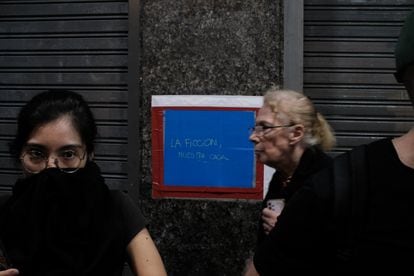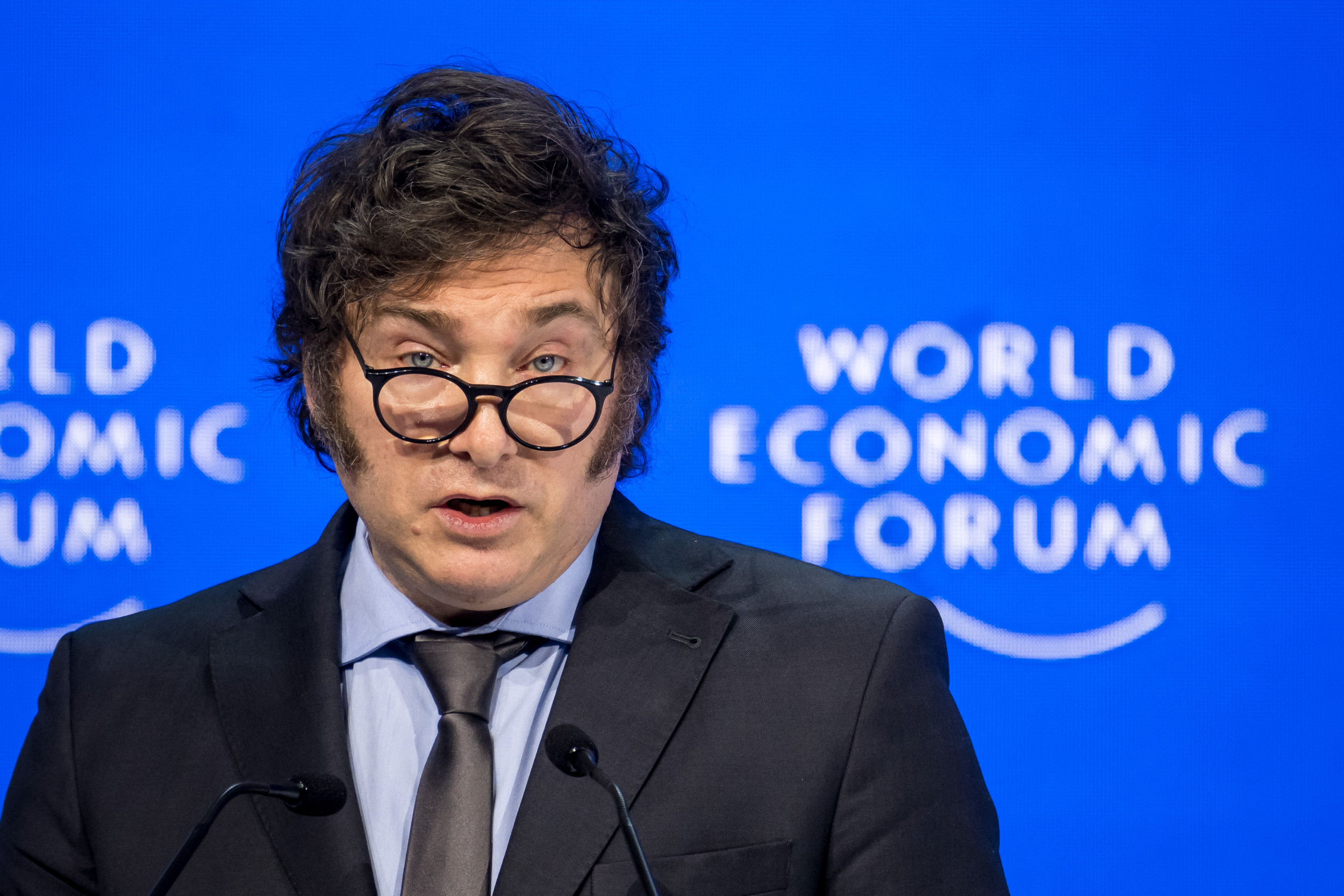The silencing of public media
In February, Milei decreed the curtailing of all state media for one year, as part of a plan for the “reorganization of public companies.” In some cases, such as at Radio Nacional or TV Pública, there have been layoffs. In others, such as at Télam, the state news agency which Milei has said he wants to close, all workers have been suspended and prevented from accessing the facilities. “The agency has been silenced for 24 days,” says 33-year-old Braulio Cabrera. He’s a union delegate and works in the agency’s photographic archive, which preserves historical material that workers fear is “at risk” due to the new measures.Micaela Polak, a producer at Radio Nacional, says that there’s “a lot of anxiety” among public media workers. “This has a lot to do with what’s happening at the communication level with the government. We find out about things unexpectedly and there are many rumors,” she notes. At Radio Nacional, 500 contracts were terminated in January. Polak wasn’t among them, but she criticizes the precarious situation faced by her colleagues, many of whom earn a basic salary of 380,000 pesos ($380) and don’t have permanent contracts. “There’s a myth that we earn a lot and the truth is that we don’t. My colleagues who have to raise children alone or who are renters need to work two or three jobs,” she explains.
At Radio Nacional, regular programming has been interrupted on holidays to save worker hours. And representatives of Milei’s administration continue to repeat that “there is no money.”
“This never happened before. Not only does it mean a loss of salary, it means that we’re unable to provide [proper programming]. Only music will be broadcast from Buenos Aires and some news bulletins,” the producer laments. Polak also points out the social function that radio plays in some parts of the country, where local stations allow residents of remote places to send and receive messages. “The service in those areas is essential.”
Scientific research, in crisis
At the National Scientific and Technical Research Council (CONICET) — the main scientific research organization in Argentina —, 140 layoffs have been recorded so far. But the chainsaw has also passed through doctoral scholarships, with a reduction from 1,300 in 2023 to a current figure of only 600. The research budget has also been cut: on paper, it’s unchanged from last year, but it’s actually only equivalent to a third of the value due to surging inflation.“We’re facing the impossibility of continuing many research investigations,” warns Nuria Giniger, a CONICET researcher and union delegate. Among these projects, she emphasizes, some are key for the country, such as those that have to do with diseases like dengue or chagas.
“Work stress has multiplied by a thousand. They started by firing the administrative staff and reducing the scholarships, but who’s to say that they’re not going to continue [cutting] researchers and support staff?” She recalls that, during his presidential campaign, Milei said that “CONICET, as it exists today, must be closed.”
Less Argentine cinema
Braulio Vega Santana, 20, demonstrated more than 10 days ago in front of the doors of the Gaumont Cinema, a historic movie theater in Buenos Aires that the government wants to sell off. It was the epicenter of a protest against the “drastic reduction” of financing for the film industry that’s taking place under the new government.Vega Santana is now preparing to protest again, this time against the layoffs at the National Institute of Cinema and Audiovisual Arts (INCAA) and the termination of contractors like himself. His last day of work was on Wednesday, March 27. He worked in a section that was dedicated to overseeing one of the institute’s funds. “It’s called Brief Stories, it’s perhaps the most important [grant]. From there, personalities like [internationally-renowned filmmaker] Lucrecia Martel have emerged. Today, the two of us who carried out [the distribution of] that grant are now unemployed,” Vega Santana says.

A diverse group of Argentine citizens demonstrated in the Plaza del Congreso against President Javier Milei for his decision not to finance the INCAA and the Gaumont Cinema, a cultural space that screens Argentine and Latin American films at low cost.TIAGO RAMÍREZ BAQUERO
For four months, he states, the delivery of funds for audiovisual projects — many of which have competed at international film festivals as recently as 2022 — “has been frozen.” The Milei administration appointed the new president of INCAA, Carlos Pirovano, only at the end of February. The economist, who has no experience in the audiovisual sector, immediately signed a series of decrees to remove financial support from INCAA initiatives in the provinces. He also cancelled the contracts of some staff members, suspended overtime payments and put an end to covering the travel expenses, phone bills, food and transportation of the institute’s employees who have to work beyond Buenos Aires. “He has the same rhetoric as Milei and is firing employees who earn very little. We don’t know what his plan is within the INCAA. He’s a [director] who came exclusively to cut,” Vega Santana affirms.
For workers in the cultural sector, not only are jobs at stake. For Vega Santana, access to culture and the diversity of artistic, theatrical and literary production is at risk. “The INCAA allows producers from any part of the country – with any ideology – to make a film without a [huge] budget. It’s an act of censorship towards the industry that someone who wants to produce now has to go through a Netflix filter,” he laments.
The Argentine Chamber of Bookstores made a similar criticism when it took issue with Milei’s recently-proposed omnibus bill, which included more than 600 measures that were ultimately not approved. The organization stated that the legislation endangered the “varied and bibliodiverse network of bookstores and publishers” in the country.
Translated by Avik Jain Chatlani.



